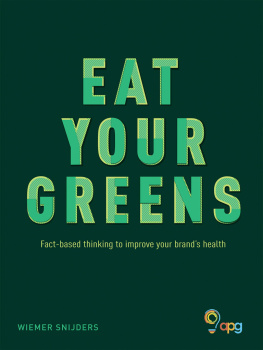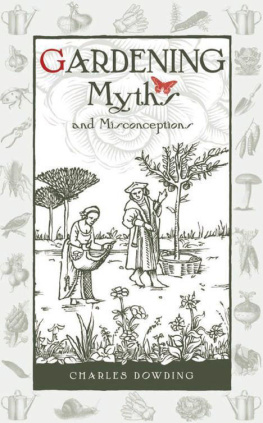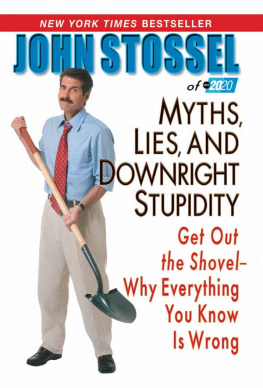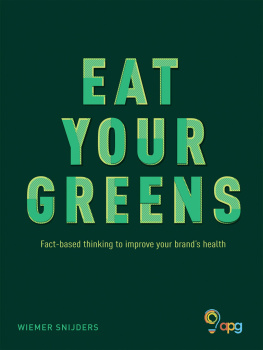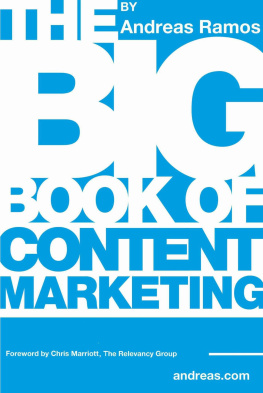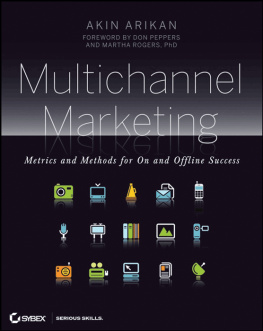Wiemer Snijders - Eat Your Greens
Here you can read online Wiemer Snijders - Eat Your Greens full text of the book (entire story) in english for free. Download pdf and epub, get meaning, cover and reviews about this ebook. year: 2018, publisher: Troubador Publishing Ltd, genre: Business. Description of the work, (preface) as well as reviews are available. Best literature library LitArk.com created for fans of good reading and offers a wide selection of genres:
Romance novel
Science fiction
Adventure
Detective
Science
History
Home and family
Prose
Art
Politics
Computer
Non-fiction
Religion
Business
Children
Humor
Choose a favorite category and find really read worthwhile books. Enjoy immersion in the world of imagination, feel the emotions of the characters or learn something new for yourself, make an fascinating discovery.
- Book:Eat Your Greens
- Author:
- Publisher:Troubador Publishing Ltd
- Genre:
- Year:2018
- Rating:3 / 5
- Favourites:Add to favourites
- Your mark:
- 60
- 1
- 2
- 3
- 4
- 5
Eat Your Greens: summary, description and annotation
We offer to read an annotation, description, summary or preface (depends on what the author of the book "Eat Your Greens" wrote himself). If you haven't found the necessary information about the book — write in the comments, we will try to find it.
Eat Your Greens — read online for free the complete book (whole text) full work
Below is the text of the book, divided by pages. System saving the place of the last page read, allows you to conveniently read the book "Eat Your Greens" online for free, without having to search again every time where you left off. Put a bookmark, and you can go to the page where you finished reading at any time.
Font size:
Interval:
Bookmark:
EAT YOUR GREENS

Copyright in this and future editions of this title only 2018 APG Ltd
The moral rights of the Editor and contributors (including cartoonist Tom Fishburne) have been asserted.
Apart from any fair dealing for the purposes of research or private study, or criticism or review, as permitted under the Copyright, Designs and Patents Act 1988, this publication may only be reproduced, stored or transmitted, in any form or by any means, with the prior permission in writing of the publishers, or in the case of reprographic reproduction in accordance with the terms of licences issued by the Copyright Licensing Agency. Enquiries concerning reproduction outside those terms should be sent to the publishers.
Matador
9 Priory Business Park,
Wistow Road, Kibworth Beauchamp,
Leicestershire. LE8 0RX
Tel: 0116 279 2299
Email:
Web: www.troubador.co.uk/matador
Twitter: @matadorbooks
ISBN 978 17890127 98
British Library Cataloguing in Publication Data.
A catalogue record for this book is available from the British Library.

Matador is an imprint of Troubador Publishing Ltd
CONTENTS
Sarah Newman
Wiemer Snijders
Wiemer Snijders and Charles Graham
Shann Biglione
Mark Ritson
Peter Field
Rory Sutherland
Ryan Wallman
Tess Alps
Jerry Daykin
Shann Biglione
Julian Cole
Becky McOwen-Banks
Anjali Ramachandran
Ryan Wallman
Rich Siegel
Rich Siegel
Mark Earls
Eaon Pritchard
Robert van Ossenbruggen
Philip Graves
Robert van Ossenbruggen
Robert van Ossenbruggen
Brandon Towl
Phil Barden
Byron Sharp and Amy Wilson
Helen Edwards
Paul Feldwick
Richard Shotton
Kate Richardson
Wiemer Snijders
Phil Barden
Adam Ferrier
Paul Feldwick
Bob Hoffman
Kate Waters
Costas Papaikonomou
Tom Goodwin
Mark Barden
Doc Searls
Sue Unerman
Patricia McDonald
Gareth Price
Rosie and Faris Yakob
FOREWORD
Stimulating better thinking
Eat Your Greens is an eclectically excellent collection of papers by some of the best thinkers and practitioners in marketing and communications. But the apparently eclectic nature of the contributions belies the seriousness of the endeavour, which is to bring together a body of evidence-based thinking in one useful and inspiring reference book.
The original idea for the book is Wiemer Snijders. The APG got involved part of the way through the project because we were keen to support the idea of bringing evidence-based thinking closer to the heart of creative strategy. While the world we occupy is apparently awash with data and facts, it is as hard as ever to find rigorous analysis combined with practical prescription, and in a form that is usable and stimulates better thinking.
Encouraging creative thinking and fuelling effective creativity are a fundamental part of the APGs purpose. The last few years have seen a number of real advances in thinking about how creativity works, and how to plan for successful communications. These ideas have taken root precisely because they are based on thoughtful interpretation of data collected carefully, and applied with understanding and flair.
The contributors cover a broad and diverse selection of subjects, but they are united by passionate personal interest and great intelligence, and cover many of the things that are uppermost in our minds as strategists: long versus short-term thinking; the fallacies of an obsession with communications and digital toys; brand equity; a female future, and so much more.
Wed like to thank all the contributors for their greens. We find the analogy rather delightful, and I should say that its the very best of freshly prepared and high quality intellectual produce that appears in the book. Wed also like to thank Wiemer for his unfathomable wells of energy, and all of you for embracing the idea that fact-based thinking has the power to create change and nurture the best of creativity.
Sarah Newman
Director, APG
INTRODUCTION
There is an abundance of data and technology available to better understand the people to whom we are selling our products and services. However, it is useless if we dont know how to use it effectively.
Progressively, this industry relies on short-term metrics, as they produce instant feedback. But we seem to have forgotten that the business of building brands is also a long game. It is one thing to measure whether someone has clicked on your ad, but the true effect of advertising is something you might have to wait several years for to effectuate. As marketing analyst Daniel Yankelovich described, disregarding what cannot be easily measured in favour of measures that do is artificial and misleading. But the ultimate step is to say that what cant easily be measured really doesnt exist which he considered suicide.
We also seem infatuated with metrics and tactics that have little relation to our actual buying behaviour. Things like tweets, buyer personas, NPS (Net Promoter Scores) and engagement rates. We convince ourselves that, with enough multivariate analyses (emphasising small differences over similarities) and significance tests (flagging differences where there arent any), we will get a better grip on peoples purchasing behaviour. Unfortunately, these things are mostly figments; cast on our office walls by projectors, flip charts and sticky notes.
So, if marketing is out of touch with reality, how can we fix it?
Thankfully, there exists a large body of knowledge that provides a more realistic view on how we can effectively sell more, to more people, and for more money. Dr Archie Cochrane introduced the concept of evidence-based medicine to the world, from which many benefited. It is Andrew Ehrenberg who did the same for the marketing industry. And its effects are starting to take hold, in part thanks to the continuous efforts made by Byron Sharp and his colleagues. But even amongst those who know and read such academics, the question of how to apply these learnings remains the subject of much debate.
And herein lies the objective of this book: not only to counter some of the hype and what we believe to be nonsense in the industry, but also to provide perspectives on how marketing can better itself, inspired (not contrived) by the advances in marketing science.
Some of the papers (or, for the purposes of this book, chapters) are written by some of the best-known thinkers and practitioners in the industry; others are written by people you might never have heard of, but from whom, nonetheless, you will no doubt find inspiration. The brief to all of the contributors was simple: tell us how you apply or find inspiration from marketing science in a short, easy-to-digest paper (some provided more than one paper). I did not ask them to write to a particular topic; this was intended as a bag of nutritious mixed greens, but as it happens, the papers did fall naturally into loose categories. The book starts with a contemporary view of the marketing industry (). The chapters offer a mix of perspectives, and varying styles: some are more academic in approach, others less formal. All are interspersed with some lively cartoons from Tom Fishburne.
These writers, these people from the trenches, dont have all the answers, and at times can be found a little at odds with each other, but they have all been willing to share their unfiltered views on how to make marketing much more effective and simpler. After all, eating your greens is meant to be good for you
Next pageFont size:
Interval:
Bookmark:
Similar books «Eat Your Greens»
Look at similar books to Eat Your Greens. We have selected literature similar in name and meaning in the hope of providing readers with more options to find new, interesting, not yet read works.
Discussion, reviews of the book Eat Your Greens and just readers' own opinions. Leave your comments, write what you think about the work, its meaning or the main characters. Specify what exactly you liked and what you didn't like, and why you think so.

